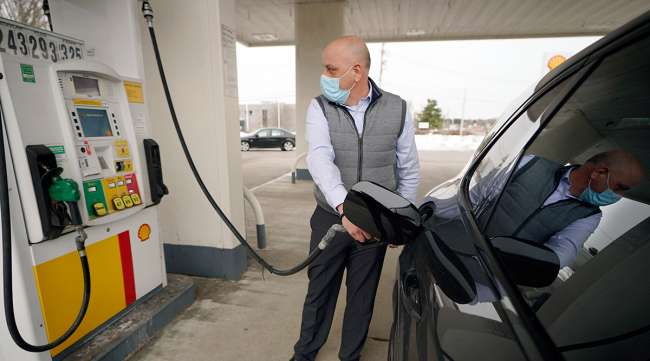Gasoline Increase Drives 0.4% Boost in Consumer Prices

[Stay on top of transportation news: Get TTNews in your inbox.]
Consumer prices increased 0.4% in February, the biggest gain in six months, led by a sharp jump in gasoline prices. But core inflation, excluding food and energy, posted a much smaller 0.1% gain, easing fears about a possible sustained acceleration in inflation.
The Labor Department said March 10 that the February advance in its consumer price index followed a 0.3% rise in January and was the largest advance since a similar 0.4% increase in August.
Consumer prices are up 1.7% over the past year, a still moderate performance for inflation that is running below the Federal Reserve’s 2% target for price increases. Core inflation, which excludes volatile food and energy, is up just 1.3% for the past 12 months.

Fleets are investing in tech-based safety tools that inform and forewarn potential risk. But how do they condition and prepare drivers to respond to safety alerts? Find out as the RoadSigns Team speaks with Tom DiSalvi, VP of safety at Schneider National, and Charlie Mohn, director of product innovation at Drivewyze. Hear a snippet, above, and get the full program by going to RoadSigns.TTNews.com.
Still, financial markets have been roiled in recent weeks about worries that inflation could suddenly start climbing at a faster rate, prompting the Federal Reserve to start raising its benchmark rate that has been at a record low since the pandemic hit a year ago.
Concerns about inflation have been behind the recent turbulence in financial markets. Fed Chairman Jerome Powell has sought to ease inflation worries by saying while prices likely will jump in coming months as the country continues to reopen, those gains should be temporary and not a sign that inflation is getting out of control.
That view is supported by private economists. Kathy Bostjancic, chief U.S. financial economist at Oxford Economics, predicted that core inflation on a 12-month basis could rise as high as 2.5% this spring. “However, we share the Fed’s view that the rise will be transitory and will not represent the start of an upward spiral,” she said in a research note.
Over half of the 0.4% overall price increase in February came from a second monthly surge in gasoline prices, which rose 6.4% after a 7.4% jump in January. Gasoline costs have been climbing since December, reflecting rising costs of crude oil.
A survey by AAA found that the national average for gasoline has reached $2.77, a jump of 31 cents over the past month. The auto club predicted gas prices could keep rising to around $2.90 this spring. The last time gas prices got close to $3 a gallon was three years ago.
The CPI report showed declines in a number of areas with used car prices falling 0.9% and clothing costs down 0.7%. New car prices were unchanged in February after having fallen in January.
Airline fares fell 5.1% while hotel room rates were down 2.3%. The travel industry has been hard-hit by the coronavirus.
Want more news? Listen to today's daily briefing below or go here for more info:



